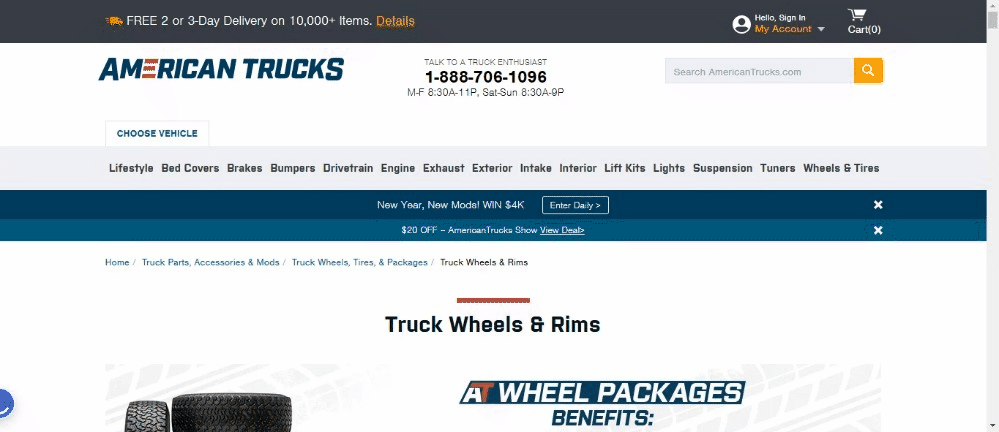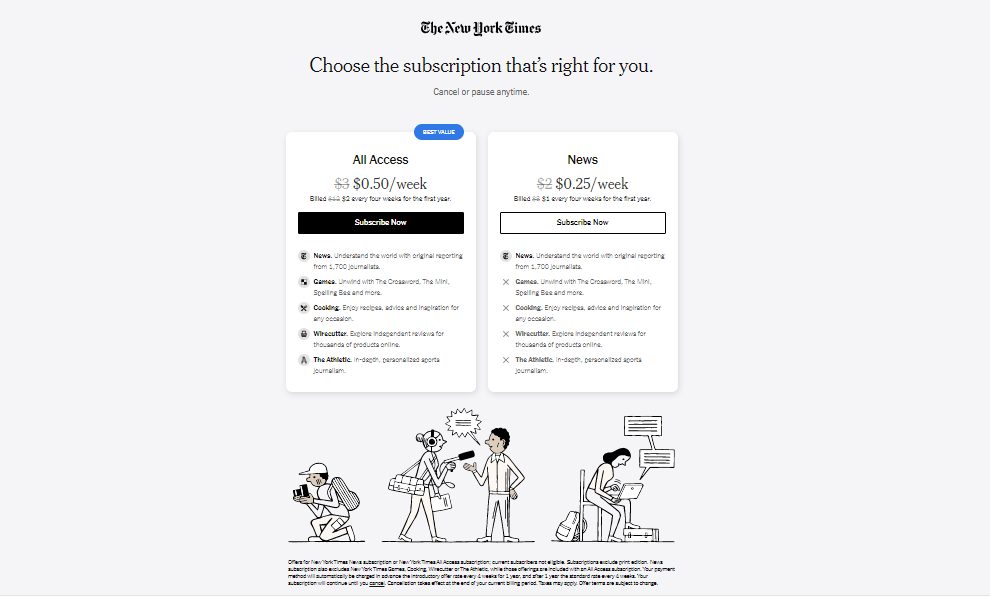
What is the Purpose of Websites and Why It’s Essential to Have One
Last update: 11 January 2024 at 11:03 am
The purpose of websites can vary, but each is an online beacon allowing you to communicate with the public. It can help form a first impression in your customers’ hearts and minds, enabling us to your products, offer services, show off your work, share your expertise, and so much more.
Our website development report in 2023 indicates that demand for new websites persisted strongly in 2022: outdoing the average by a large amount. In spite of the economic situation that resulted in lower budgets, demand was above average in most months (3/4).
Every business needs a website. Whether a vast software giant or a small mom-and-pop store, you needed an online presence to remain viable in 2023. But why is that the case?
That’s what we’re going to explore in the following sections.
What doest it mean by the “purpose of websites”?
When we talk about the purpose of websites, we’re talking about more than just having a place to put your information. Different companies have different needs for their websites. Your website could serve various purposes based on your company’s specific needs.
There are more than 1.92 billion websites in the world right now. While as shown in the image above, website creation numbers have been dropping since 2018, with hundreds of millions of new sites created yearly.
Each website has a specific purpose that serves its creator or owner. There are some common elements found on websites all over the world. You have homepages, terms and conditions pages, contact pages, images, and other forms of multimedia, all designed to serve the site’s overall purpose. But those purposes can vary greatly, and that’s what we will be exploring below.
Various functions of websites
Sales
Sales websites offer physical or digital goods online. Customers can log into an account, select their items, and have them shipped to their homes or business.
The key to creating a successful sales website directly is ding your audience and now catering the experience to them.
Take American Trucks as an example. It has a niche audience interested in particular products, like truck rims. The company understands that having a complete sales website with information regarding these products and topics is fundamental to gaining more customers. It also creates a simple checkout flow that allows users to make their selections and complete purchases with minimal effort.

Then you have affiliate sales websites, which sell the products of other vendors for them. Typically this is done in exchange for a cut of the profits. The world’s most famous example of an affiliate sales website is Amazon, which brings in products from companies worldwide and sells them through a convenient platform.
The purpose of a sales website is to turn browsers into buyers and generate profits directly through selling quality products. These sites also strive to create repeat customers, hoping to regularly draw in their audience for multiple purchases.
Spread Information
The purpose of an informational website is to spread online education and inform an audience looking to learn more about a niche.
News websites would be a prime example of this. Typically, these websites post quality news articles or videos regularly to increase traffic and generate revenue.
How do they generate revenue?
There are a few ways to do this.
First, the subscription model charges readers a premium for access to the news. The New York Times’s website works off this model, even going so far as to grant users several free articles per month before charging them for more.
Then you have ad-driven revenue. It is a news website that’s always free to access, but it contains ads within its content to generate income. These ads generate income through clicks and impressions.
There are many different types of news website niches. Political sites, sports-based sites, entertainment news, instructional DIY websites, and recipe-driven websites are created to spread information.
Entertainment
Entertainment websites are created for the sole purpose of entertaining an audience. But it’s also possible to drive income using a site like this. Websites like CollegeHumor created and posted original shareable skits and videos.

Websites like this can charge a subscription fee for access or use advertising revenue to generate profits.
Some informational websites can also serve as entertainment sites. A website that reviews movies coming to theaters and gives recommendations can serve the purpose of both an informative site and an entertainment platform.
When it comes to entertainment websites, most people want to see video content, as it’s far easier to enjoy passively.
Lead Generation
Businesses often use their websites to generate leads and draw new people into their sales funnel. This tactic is used by marketing firms, contractors, consultants, and more.
In these instances, the business will offer a free webinar or ebook to attract leads. In exchange for the resource, website visitors will enter their information. It can be their name, email address, phone number, job title, and other lead data the business is looking for.
It differs from a sales website since the inevitable sale often takes place away from the business website. The online presence is used entirely to gather lead data to be followed up on later.
Portfolio
Professionals like artists, videographers, photographers, architects, and interior designers might want a website to display their work. It creates a professional portfolio website that potential customers can peruse at their leisure before hiring the vendor.

Couples planning their wedding will want to see examples of a vendor’s work before handing over their money to book them for such a special moment in their lives. Additionally, the customers of contracting professionals or architects should only make a substantial financial investment after seeing the style and quality of work demonstrated by the vendor.
Even a site featuring video testimonials from a business’s customers or clients of an ad be considered a type of portfolio.
A portfolio website may double as a lead generation site, as it often has a contact form on the page.
Services
A services website is very similar to a sales website; instead of selling physical goods, you’re selling professional services.
It can include a subscription box, satellite TV packages, a membership to a club or social group, and any situation where you pay through a website for something that is not a product you can hold in your hand.
These sites work a lot like a typical sales website, where you have to create a seamless customer experience and checkout process designed to inspire trust in your audience.
Whether your business offers services or products, having a website for your business will help people find you when they search for information about what you offer through search engines, have accurate information about your services, know your history, and even know your prices.
Blogging
Blogs are great for talented people to share their thoughts and opinions. The purpose of a blog could be to establish a personal brand or generate revenue through affiliate links to various products and services. A blog can be the backbone of a unique website or a fun way to take your business online.
Blogs can be written, appear in a video format, or even come as an audio podcast. When blogging about specific companies or reviewing products, you can often get an affiliate link to share with your audience. When someone uses your affiliate link and purchases through a sales website, you get a cut of that sale.
Companies may use sophisticated content planning tools to drive their SEO efforts to generate website traffic and build trust by showing their expertise to potential customers. An example could be a law firm with a blog explaining what potential clients can do if they face traffic citations or a divorce.
Brand Establishment
Websites can be a great way to establish your brand and generate visibility in a crowded market. When your website is high-quality and eye-catching, it can help you stick in the minds of your potential customers.
One way to do this is with a professional logo. Displaying your brand logo on your website helps you build brand awareness and recognition. It also helps set your company apart from its major competitors. That’s why developing a logo that aligns with your vision, values, and style is essential. You can hire a graphic designer or use an online logo maker to create a professional logo for your company.
Just make sure that the brand’s logo, color scheme, tone, and images are consistent throughout every page of your site and any landing pages you might build in the future.
Why do you Need a Website?
In the olden days, before the internet was used for almost everything, you made a first impression through print advertising, television commercials, or by having someone stumble upon your physical location.
Now, with more than five billion people around the world using the internet, it’s more likely that your first interaction with a potential customer will be online. That’s why your website is so important. Websites are the new storefronts, and you must ensure that your online presence is of the highest quality if you want to impress potential buyers and draw them into your brand for years to come.
With that in mind, here are a few things to remember when creating your online home.
Your business website needs to be responsive, and user experience should be paramount. A responsive website offering a high-quality user experience can ultimately impact your revenue operations, so design it carefully to boost leads and conversions.
The site also must be eye-catching, as you want to draw your audience’s attention and pull them in with your quality content and products.
Having a visually appealing website is equally as important as having a user-friendly website. A significant factor influencing website usability is the speed at which it loads. Several elements can control how fast a website loads and images are one of them. Web designers prefer vector graphics due to their smaller size and faster loading speed.
Remember, your website’s overall appearance and usability can significantly reflect your company’s effectiveness. If the website is challenging to use or ugly and unimpressive, it’s the same as having an in-store associate wearing sloppy clothes and providing subpar service. So not only do you need to have a website, but it needs to be of a certain quality if you’re going to succeed.
Conclusion
Business owners need to invest in a company website. It’s necessary for all industries now, a trend that will be around for a while. If you’re digging your heels in and wondering why you need a website, you’re doing a disservice to your success by being stubborn and not changing with the times.
To review, websites serve a variety of purposes, including:
- To sell products
- Spreading information
- Entertaining your audience
- Generating leads
- Displaying your work in a portfolio
- Selling services
- Blogging
- Establishing your brand
By keeping the purpose of websites in mind when you create your website, you’ll be able to decide what you’re trying to accomplish and develop a solid online home for your business that can continue to evolve and make a killer first impression. Once you know what kind of site you want to create, you’ll have an easier time finding a quality web designer to make your dreams come true.







